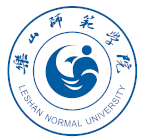Home > Presentation > Research context

Research context
EcoHealth is a domain of science committed to fostering the health of humans, animals and ecosystems and to conducting research which recognizes the inextricable linkages between the health of all species and their environments. A basic tenet held is that health and wellbeing cannot be sustained in a resource depleted, polluted and socially unstable planet. This is why EcoHealth scholars and practitioners engage in integrated systemic approaches to health that sustain ecosystem health services, foster social stability and promote the peaceful interdependence, coexistence and evolution of humans, animals, plants and their environments. (see also Zinsstag 2012).
 Research in health ecology and conservation should be based at regional universities and/or research institutes with very close links to the surrounding and world communities, especially with organisations capable of maintaining monitoring programs concerned with ecosystems, human and animal health (Millenium Ecosystem Assessment, 2005; Patz et al. 2004). Being multi-disciplinary and cross-sectoral, those centers should select objectives related to the integration of research forces aiming at evaluating environmental and socio-economical processes that may alter human and ecosystem health. They must provide information based on good science and help to equip professionals with the ability to recommend policy towards maintaining ecosystem function and promoting sustainable public health for future generations. In this perspective the choice of questions and research works must be carried out in good partnership with local communities. They must also help to consider inherent trade-offs when considering land-use changes, health and development.
Research in health ecology and conservation should be based at regional universities and/or research institutes with very close links to the surrounding and world communities, especially with organisations capable of maintaining monitoring programs concerned with ecosystems, human and animal health (Millenium Ecosystem Assessment, 2005; Patz et al. 2004). Being multi-disciplinary and cross-sectoral, those centers should select objectives related to the integration of research forces aiming at evaluating environmental and socio-economical processes that may alter human and ecosystem health. They must provide information based on good science and help to equip professionals with the ability to recommend policy towards maintaining ecosystem function and promoting sustainable public health for future generations. In this perspective the choice of questions and research works must be carried out in good partnership with local communities. They must also help to consider inherent trade-offs when considering land-use changes, health and development.
 The IRN EHEDE typically lies in the heart of this conceptual framework and aims at enhancing the profile of ecosystem approaches to health. It creates conditions conducive to work on getting empirical field data and models that are directed toward understanding how ecosystem alterations impact human and animal health, and how human activities impact ecosystem health. A further goal is to reinforce links with other colleagues, universities and research organisms, especially international, wishing to use concepts and methods of ecology to undertake research on health issues, or conversely to use concepts and methods of health sciences in ecology.
The IRN EHEDE typically lies in the heart of this conceptual framework and aims at enhancing the profile of ecosystem approaches to health. It creates conditions conducive to work on getting empirical field data and models that are directed toward understanding how ecosystem alterations impact human and animal health, and how human activities impact ecosystem health. A further goal is to reinforce links with other colleagues, universities and research organisms, especially international, wishing to use concepts and methods of ecology to undertake research on health issues, or conversely to use concepts and methods of health sciences in ecology.
Stress is on the long term monitoring of ecosystems, population dynamics of host and pathogen organism on local and regional scales, and on advanced methods for statistical modelling, simulation methods, including those combining remote sensing, GIS and spatial modelling, and molecular genotyping to characterize host and pathogen populations.










